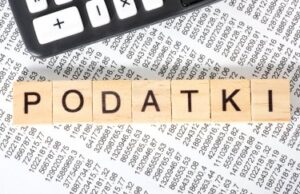
Verkhovna Rada adopted a law № 8401, an important structural beacon of the program with the IMF, on the abolition of the 2% flat tax (UT) from August 1 and the return of documentary checks and EDB control, said first deputy head of the specialized Committee of the Rada Yaroslav Zheleznyak.
He said in Telegram that 239 people’s deputies voted for the law in its entirety.
According to him, the law stipulates that the payer of the 2% UT will be entitled to submit an application for waiver of the 2% UT and to indicate the tax system he wishes to switch to. Without such a statement, as well as if the payer does not specify the desired system in the application, he will automatically be returned to the system on which he was before the election of the 2% UT.
Also automatically will be considered as payers of UT of the third group with a rate of 5% newly formed business entities, which from the date of state registration chose the 2% UT.
As indicated by Zheleznyak, the law automatically restores the rights and obligations of a VAT payer for those entities whose registration was suspended as a VAT payer, and gives taxpayers who switched from 2% UT to a common system in 2023, the right to switch again in 2023 to a simplified system of their choice by submitting an application. In this case, if the application is filed before September 1, 2023, such a taxpayer will be considered a payer of UT from August 1, 2023.
The bill repeals the current moratorium on inspections of excisable goods (alcohol, tobacco, fuel), gambling and financial services from August 1, the deputy also said.
At the same time, he said, on October 1, responsibility for violations in the use of EDR is returned. An exception was retained only for front-line territories, but not for trade of excisable goods.
Zheleznyak said that the “technical debt” (arising from April 1, 2022 to July 31, 2023 in the electronic cabinet) will not be taken into account in determining the ability of the taxpayer to continue to stay on the simplified system.
The final version of the adopted law, said the deputy, provides for the right to voluntary payment of UT and UTII for the front-line territories (including areas of possible hostilities) and the opportunity for sole proprietors of UT without VAT to indicate the names of goods (services) in the calculation documents in the simplified form.
There is also a rule that for the transfer of goods by legal entities for the defense forces there is no need for the approved list of the CMU, added Zheleznyak.
As clarified by the head of the Finance Committee of the VR Daniel Getmantsev, the bill from August 1, partly repealed the current moratorium on inspections for excisable goods (alcohol, tobacco, fuel), gambling and financial services, and the end of martial law, if the payer pays the amount assessed by the inspection taxes or ERW within 30 days – he is exempt from penalties and fines accrued on that amount.
The head of the committee said that there is a moratorium on documentary inspections for payment of ERUs from August 1, 2023 until the end of martial law.
At the same time, taxpayers are exempted from liability for violations in payment of ERUs, committed from the beginning of martial law and until August 1, 2023, and taxpayers in the frontline territories (including areas of possible hostilities) will not be taken to repay the tax debt.
Hetmantsev added that the “technical debt” (which occurred from April 1, 2022 to July 31, 2023 in the electronic cabinet) will not be taken into account in determining the ability of the taxpayer to continue to stay on the simplified system.
The final version of the adopted draft law provides for preserving the right to voluntary payment of the single tax and ERU for front-line territories (including areas of possible hostilities) and enabling single tax payers without VAT to indicate the names of goods (services) in the calculation documents under the simplified system.
As previously reported, the Rada adopted the draft law № 8401 in the first reading on the eve of the IMF mission on the first review of the EFF – May 29. Then it was supported by the minimum required number of deputies – 226. Within the framework of the EFF program with the IMF it was supposed to come into force on July 1, but because of the delay in its consideration the Rada finance committee proposed to postpone its entry into force until August 1.
After working through almost two thousand amendments a week earlier, the Committee recommended MPs to support the bill as a whole, the first time softening the criteria for selecting companies for documentary checks.
The IMF representatives said on June 29, after the second tranche of $890 million was disbursed to Ukraine, that the Fund had agreed to postpone the implementation of this structural beacon for a month, but it remains one of the key ones in the program.